Since Joanne Erickson lost her apartment, volunteers, housing groups and government representatives have tried — and failed — to find her a home. Her story shows how seniors are falling through our social safety net.
By Jessica Goodheart
Photos by Barbara Davidson
The first night that Joanne Erickson was homeless, her cat Muriel would not stop crying, a high-pitched yowl that started when they arrived at the extended stay hotel in El Segundo, California, and lasted until the next morning.
“We’re scared. I’m scared,” Erickson said. Erickson is physically frail and surviving off her monthly $1,799 Social Security check. By Friday, her money will run out. At that point, she could accept a loan to bridge the gap until she receives her next Social Security check the following week. But borrowing the money will only delay the moment when she exhausts her funds. “I’ve got to make some really big decisions,” Erickson said.
Last month, Erickson was still in her apartment, counting down the days until her eviction date. Now she is staying in a $124-per-night room that she cannot afford, with a queen-sized bed and small kitchenette. As before, she is contemplating living in her car with her cat.
When Erickson lost her eviction case in early January, she was entirely alone, unrepresented by a lawyer and without family to aid her. That’s changed. A small coterie of volunteers, acquaintances, as well as government and nonprofit workers have come to her assistance. The beachside community where she lived for 23 years filled its community Facebook page with suggestions about where she could find housing resources. A fundraising campaign raised about $800 to help defray her expenses.
But for all that, the outcome for Erickson remains the same. She is one of 75,518 homeless people in Los Angeles County, according to the most recent point-in-time count. She is also part of a growing cohort of unhoused seniors. People over 55 are the fastest growing group of unhoused people in the state, as CalMatters has reported. Nationally, the number of homeless older adults is projected to nearly triple by 2030, with the number of homeless adults over 65 increasing from 40,000 in 2023 to a projected 106,000. Some of them will be unhoused people aging, while others, like Erickson, will lose their housing for the first time as an older adult, because of a lost job, a health crisis or some other financial shock.
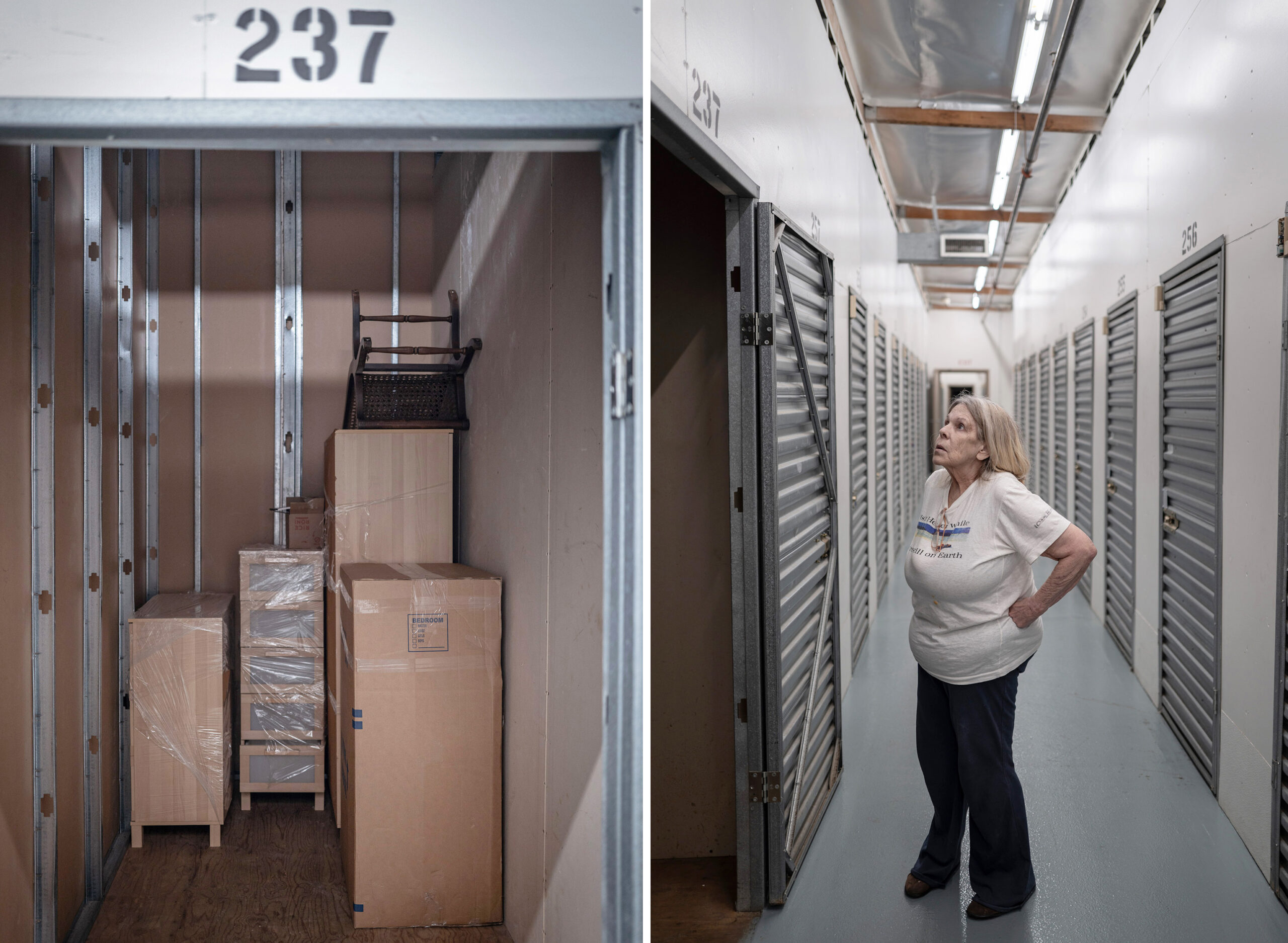
Erickson’s journey from eviction court to this all-too-temporary perch reveals the holes in the social safety net that — despite substantial public investment by the state — can not catch people as they fall. Over the past several weeks, Erickson has considered a menu of alternatives to living in her 20-year-old Volkswagen Beetle: tiny homes, a rental subsidy, a shelter bed, a nearby senior housing project, a room in a private home and a shared living arrangement organized through a nonprofit. But for different reasons, none of these options has panned out.
Her landlord rejected a rental subsidy that could have prolonged her stay in the apartment. There are lengthy waitlists for tiny homes, classified as temporary housing, and for apartments in sought-after affordable senior housing developments.
Her determination to stay with her cat posed a challenge to accepting a room in a private home owned by a pastor, who in any case gave mixed signals about whether the room was available to her. A nonprofit offered her a shared room for an affordable price but required her to keep the cat outside, a dealbreaker for Erickson. She so far will not consider a bed in a congregate shelter due to concerns about her safety and the potential separation from her beloved pet. The options that would keep her from living in her car either fell through, were not pet friendly or were not immediately available. “All I want is an apartment that I can get into that can be subsidized,” Erickson said.
On Feb. 9, Erickson, with the help of some volunteers, packed up her belongings, as well as her cat Muriel. At the time, she thought she was leaving her one-bedroom apartment for good. When she lost her eviction case, the judge told her she had to be out of her apartment by 5 p.m. or “the cops are going to come get you,” she said.
She broke down and cried upon arriving at the extended stay hotel, overwhelmed by the loss of her home, a chaotic day full of movers traipsing through her apartment, and trips to a storage facility, where she is keeping her belongings — a $315 monthly expense that she can not afford.

But she would return to her apartment two days later, on a Sunday, after she was advised that she did not need to leave until after the Sheriff’s Department posted a notice on her door. If a landlord wins a case in court, the tenant has five days from the time a sheriff’s deputy posts a “notice to vacate” to move out. Erickson needed to save the money she would have spent on a hotel room, so she stayed on in her Playa del Rey apartment as long as she could, sleeping little and worrying about when a sheriff’s deputy would appear. Twelve days later, on a Friday afternoon, Erickson spotted the notice on her door. She wrote in a text, “It’s real now. I’m so scared.”
Still, those extra days in her apartment had bought her some time. The Los Angeles Homeless Services Authority, the organization that coordinates housing and homeless services for the region, deployed a social worker from its Problem Solving Unit to help her. (The Problem Solving Unit works to keep people in their current housing or identify an alternative within their own social network.)
Erickson’s previous landlord, Linda Light, rejected an offer from an LAHSA official to cover the overdue rent and allow Erickson to stay in the apartment, according to an internal email obtained by Capital & Main.The landlord’s attorney declined to speak to Capital & Main. As of last fall, Erickson owed her landlord $11,613 in back rent, according to court papers. When she lived there, the apartment rented for $1,659 per month.
Erickson hoped to secure a spot at Del Rey Square, a senior housing complex in her community where tenants typically pay around 30% of their income in rent. A field representative from Councilmember Traci Park’s office visited her apartment the Friday evening before her eviction to assist with completing an application, ensuring Erickson could submit it before the application period closed. The gesture touched her deeply.
However, her chances of securing a spot soon are slim. Erickson’s application was merely entered into a lottery to be added to a waiting list for a federally subsidized apartment in the 124-unit property. The units that could be filled by that lottery are currently occupied, according to Elena Theisner, the vice president of property management at Thomas Safran and Associates, the property owner. “There’s absolutely a need for more of this housing,” Theisner said. Since then a volunteer has helped Erickson apply for an apartment in a new senior housing complex that is expected to open in June in Glendale, a city located 29 miles away.
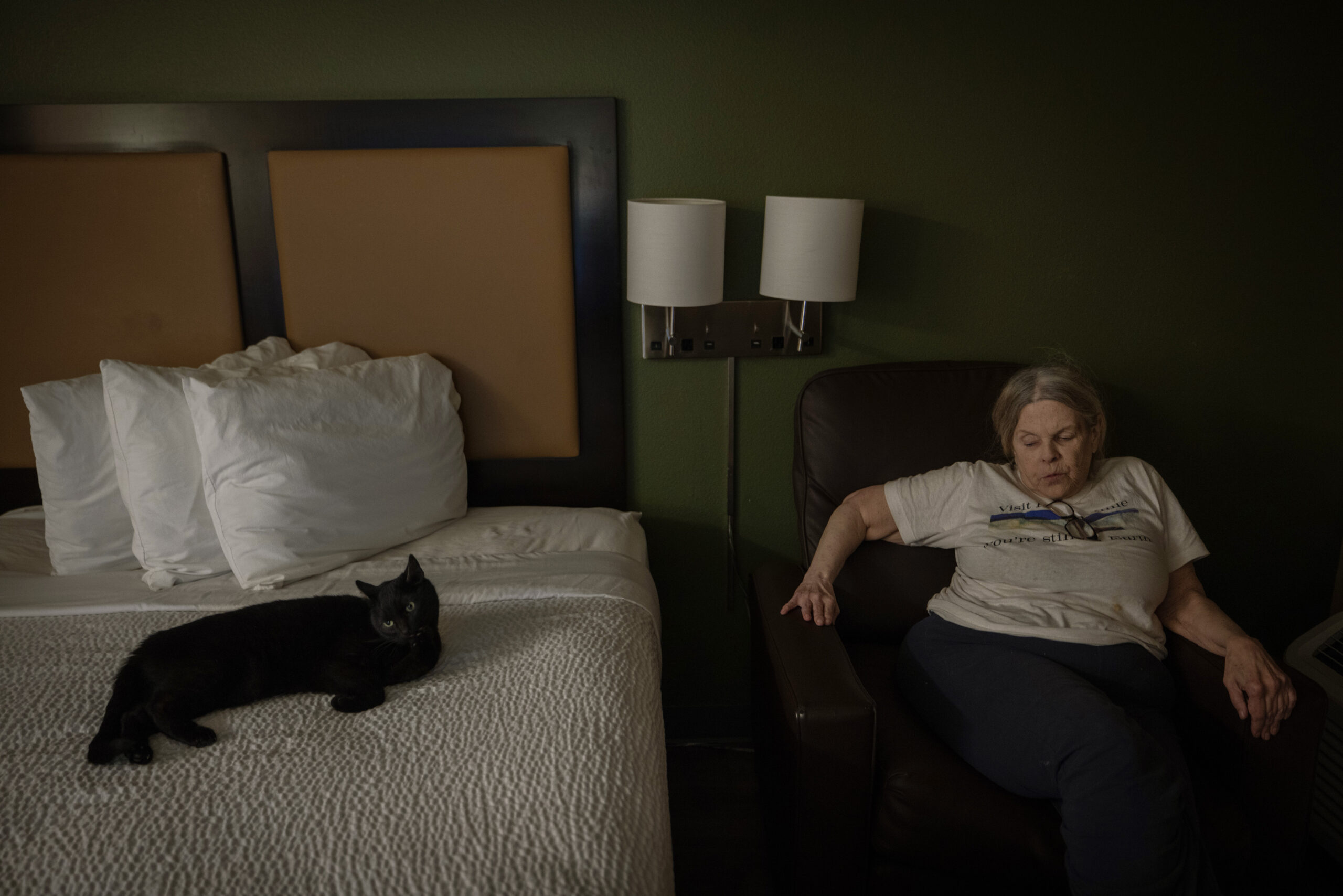
The day before she finally left her apartment for good, a local pastor, Tony Shen, arrived at Erickson’s door, offering what appeared to be an alternative to the fate she most feared: living in her car. He had a room available in a four-bedroom house, an investment property his family owns. He had told her about the room in mid-January. But at the time, the room seemed too expensive to her, and he said that she might not be able to bring her cat.
Shen, who is pastor at the evangelical Del Rey Church, wrote on the Playa del Rey Community Facebook group later that day, “I visited Joanne today. I have a private room available in a 2,400 sq ft house in Westchester, and I offered it to her at whatever rent she can afford for the short to medium term.” She told him she could pay $1,000 per month, a stretch for her tight budget.
But within hours, the offer was rescinded. Shen texted Erickson late that evening, telling her that another tenant would be renting the room. “It’s more than the $1,000 so I need to take it,” he wrote.
Erickson suspects that Shen was unhappy with her housekeeping. Shen said he “could have worked around” that issue. But having to take care of his own family, he needed to accept the higher-paying tenant, he said. By Wednesday morning, however, that tenant had backed out. The room remains available to Erickson if she will take it, he said. She would have to come without her cat since one of his tenants is allergic. That is a nonstarter for Erickson. She said her cat has been designated an emotional support animal by her doctor.
***
On Tuesday, her last day in her apartment, Erickson sat on her couch as Muriel wandered around her apartment. She wore a summer weight puff-sleeve blouse and black leggings. Next to her was a white envelope where she had written referrals in neat cursive.
At that moment, Erickson was holding out hope for finding a place in one of the tiny home communities that have sprouted up to provide transitional housing for unhoused people. “I’m very interested in that,” she said. “Maybe they’ll call later on.” But she has ruled out living even temporarily in a shelter because she is concerned that she will not be able to bring Muriel. (Pets are allowed into LAHSA-funded shelters, if they are vaccinated, on a leash, in a carrier or otherwise under control, according to an agency spokesperson.)
On the Playa del Rey community Facebook page, a neighbor suggested she look into getting help from Share! Collaborative Housing. The Culver City-based nonprofit offered Erickson a shared room for $600 a month in a home in Downey, a city in Southeast Los Angeles County that is 20 miles from where she lives. The cat would have had to remain outside. “I probably would have gone if Muriel could come, but I just can’t do that,” Erickson said.
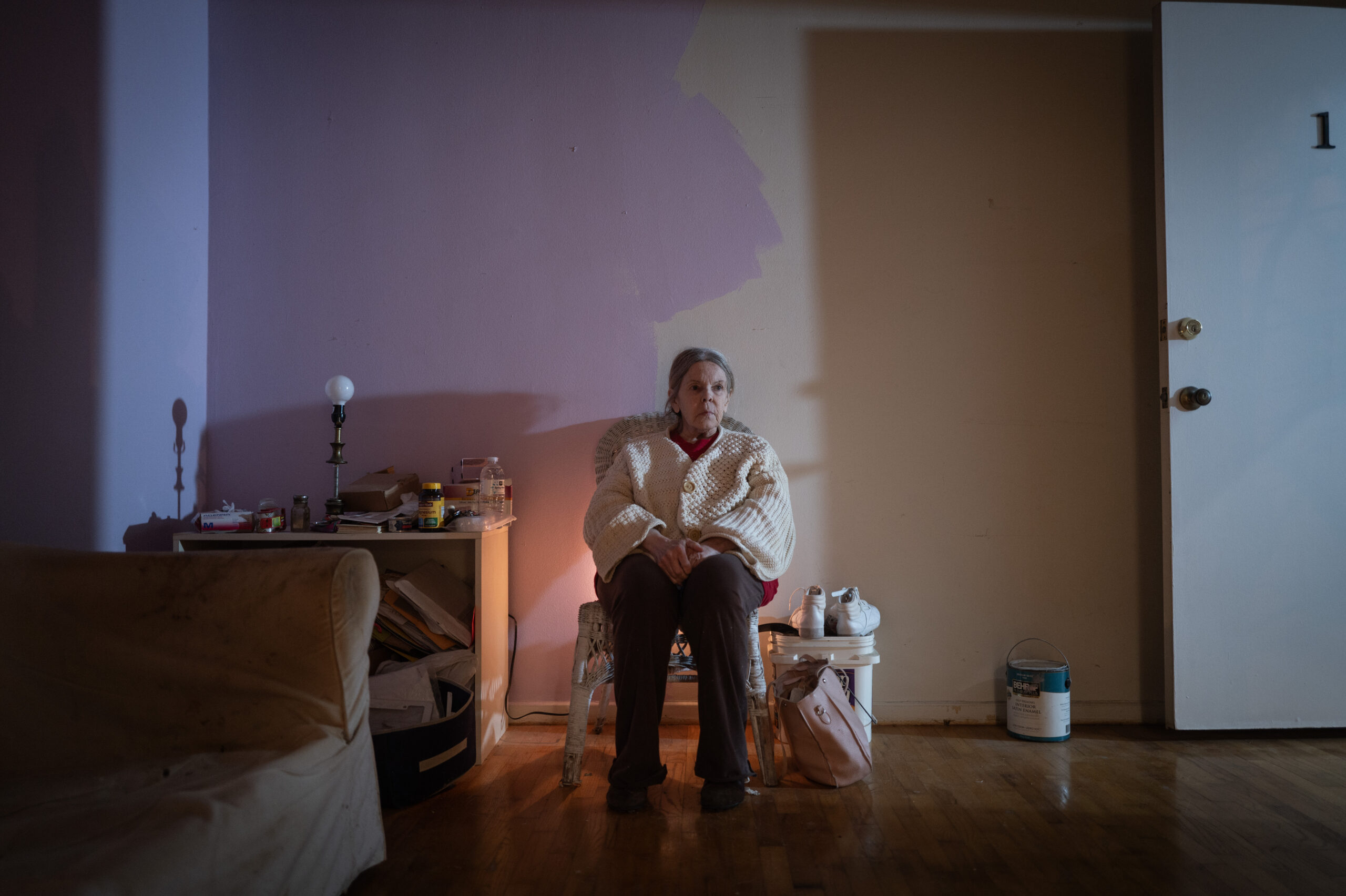
Now a space in the county’s Safe Parking LA program, which provides secure overnight parking to the unhoused, appears to be her only viable option. But on March 4 she was too sick to leave her room to meet with someone at a social service agency in Venice she thought would help her find a spot. She’d been up all night throwing up. “I just didn’t feel safe driving,” she said.
Through her journey, Erickson has had the assistance of a volunteer advocate, Naomi Waka, whose day job is as a compliance manager for an affordable housing nonprofit. So far, Waka, who has been volunteering for years to help unhoused people, has spent about 30 hours working to get Erickson housed. She laments the lack of affordable housing in the region. She also said the funding for homeless services has too many strings attached. Service providers are “locked in with all these requirements, but it’s not getting people housed,” Waka said. The public sector “needs to get more creative.”
On Wednesday, Erickson was despondent and unable even to run a simple errand. She was again facing the possibility of living in her cramped car, a life she did not want to share with her cat. By this time, Muriel had grown to like the hotel room. “She can’t stay in a car 24 hours a day,” Erickson said. “Maybe we’ll need to part ways, and I don’t want that to happen.”
Even as she runs out of options, Erickson occasionally shows flashes of humor. “If anybody wants to marry me, or hire me, you could put that in the postscripts,” she said. “He doesn’t have to be that bright or anything like that, you know.”
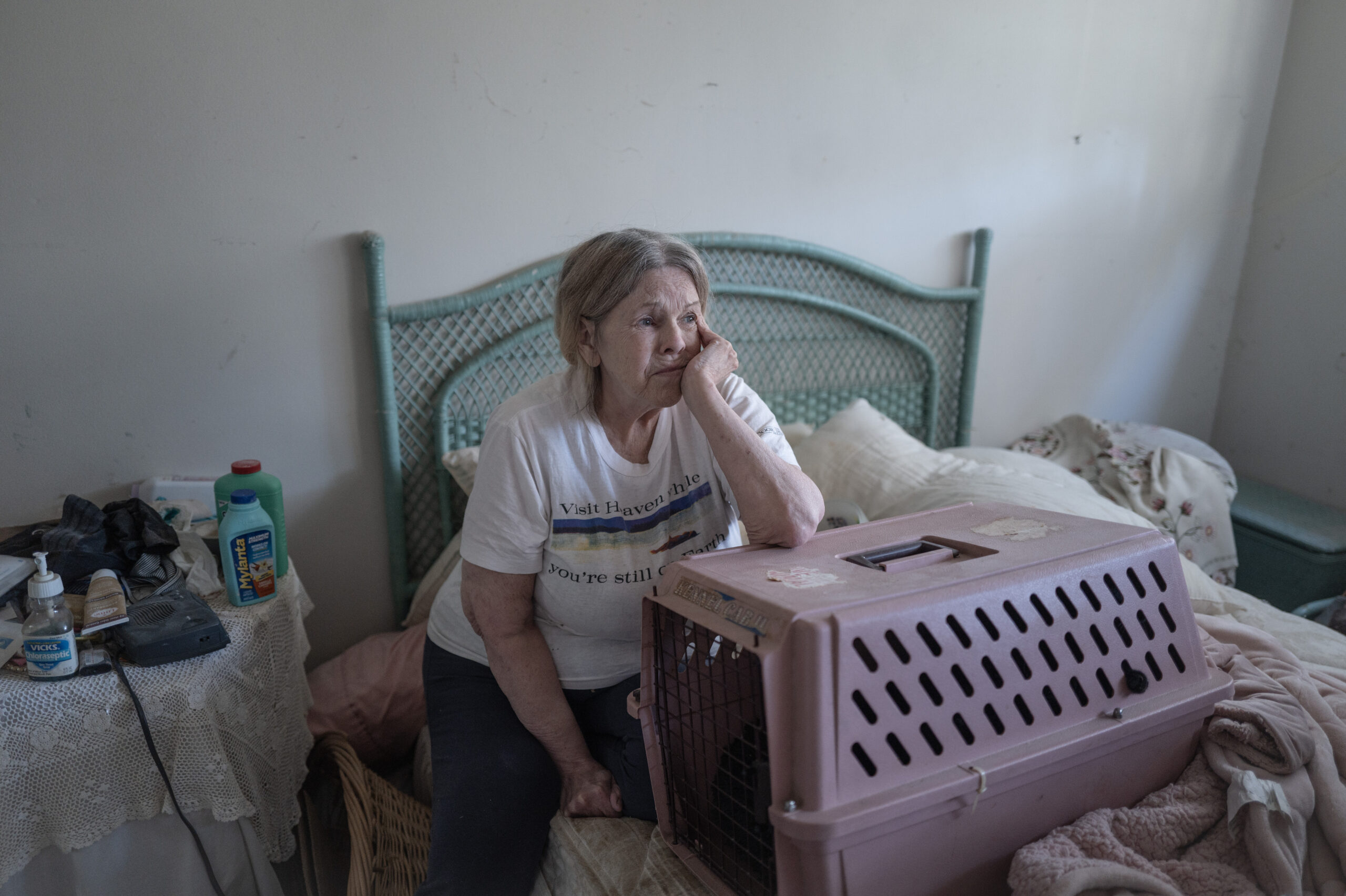
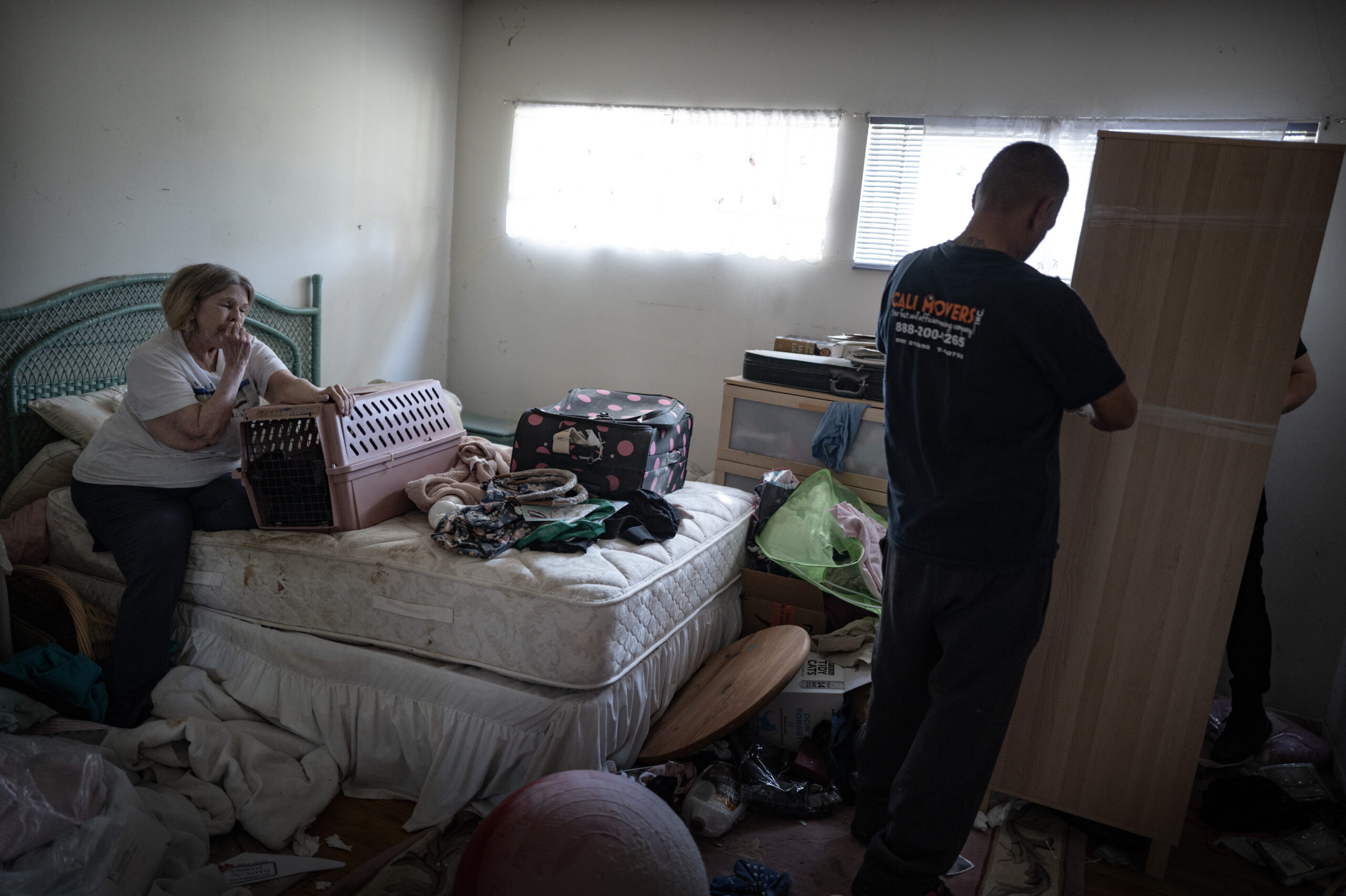


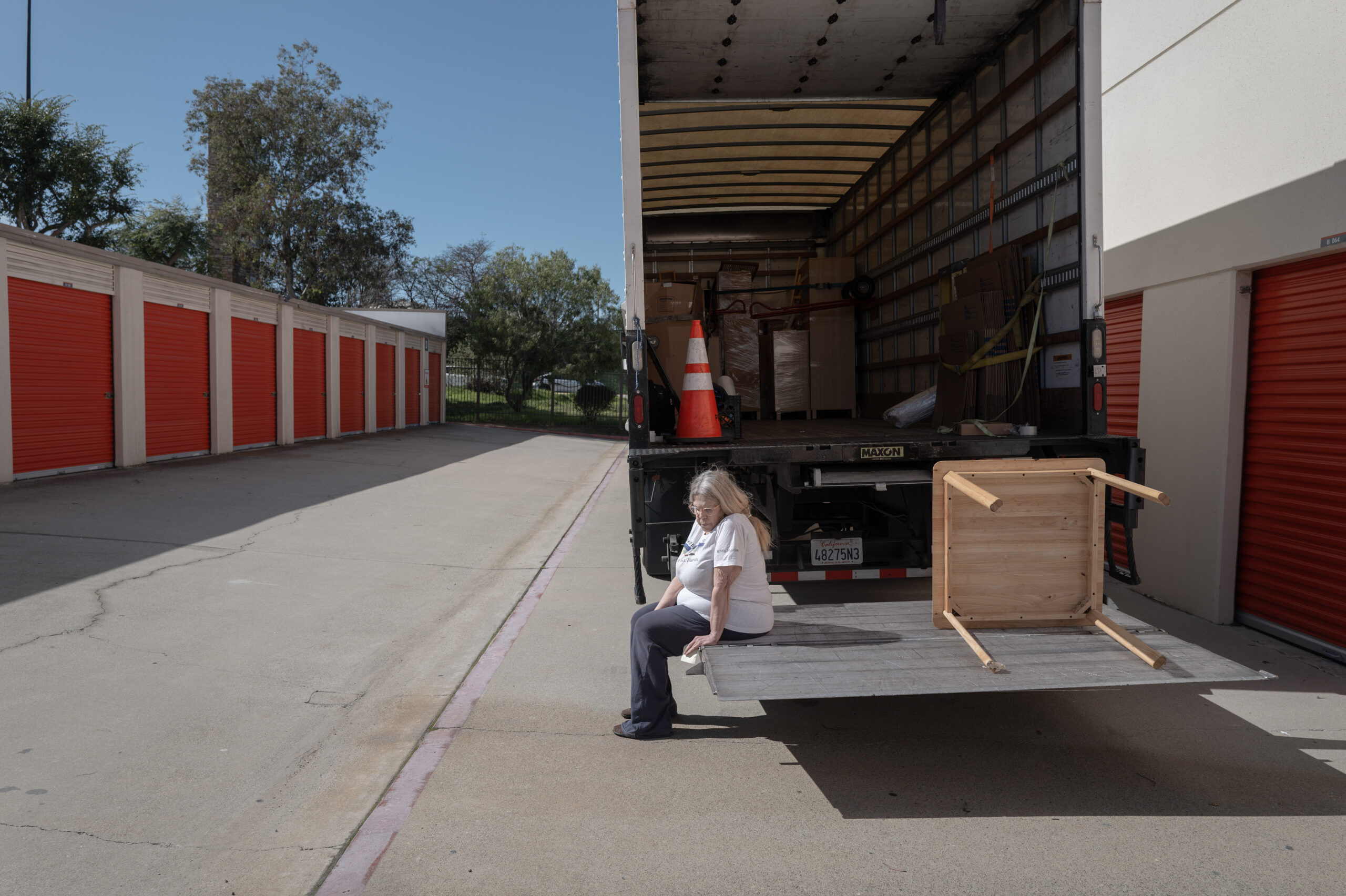


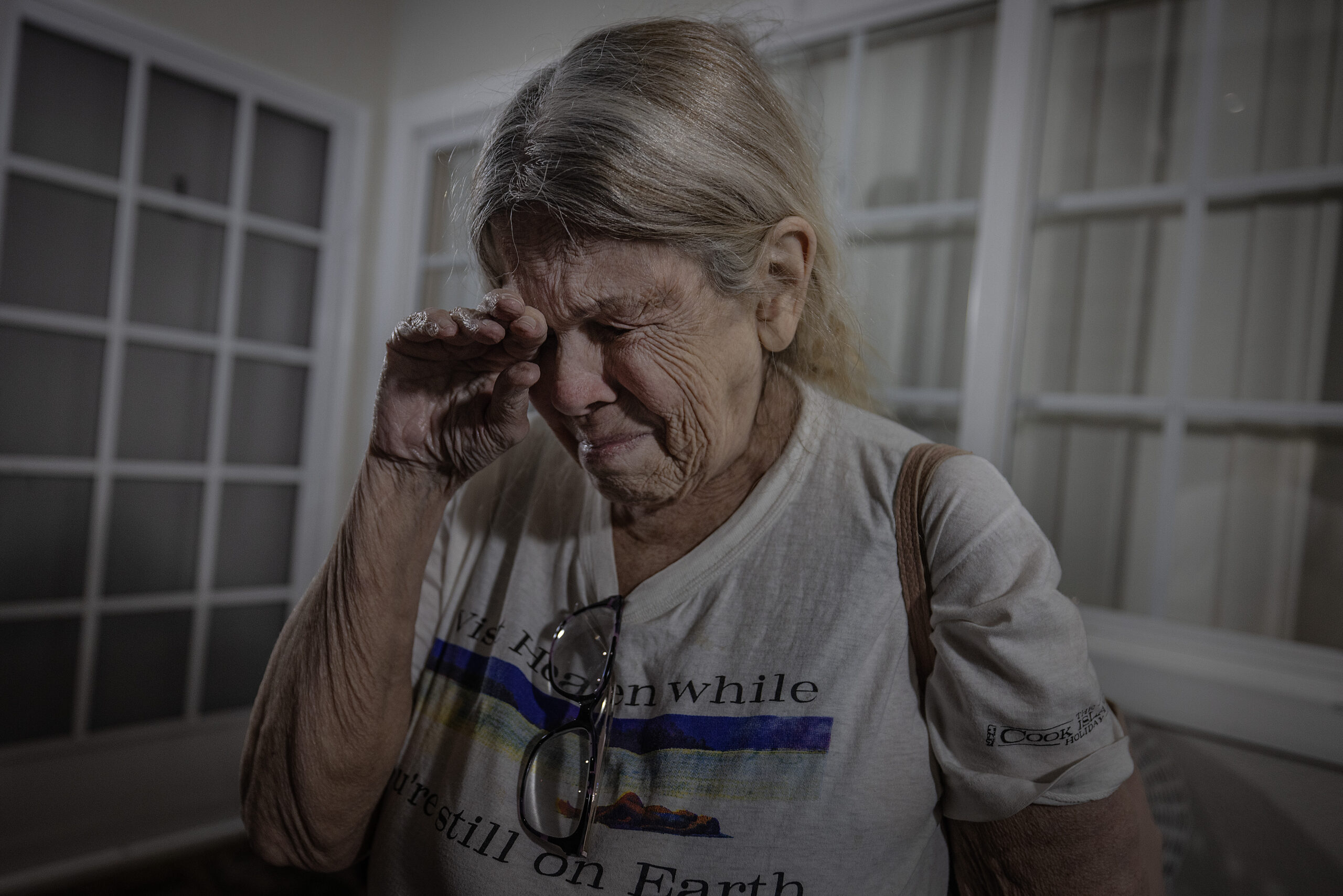


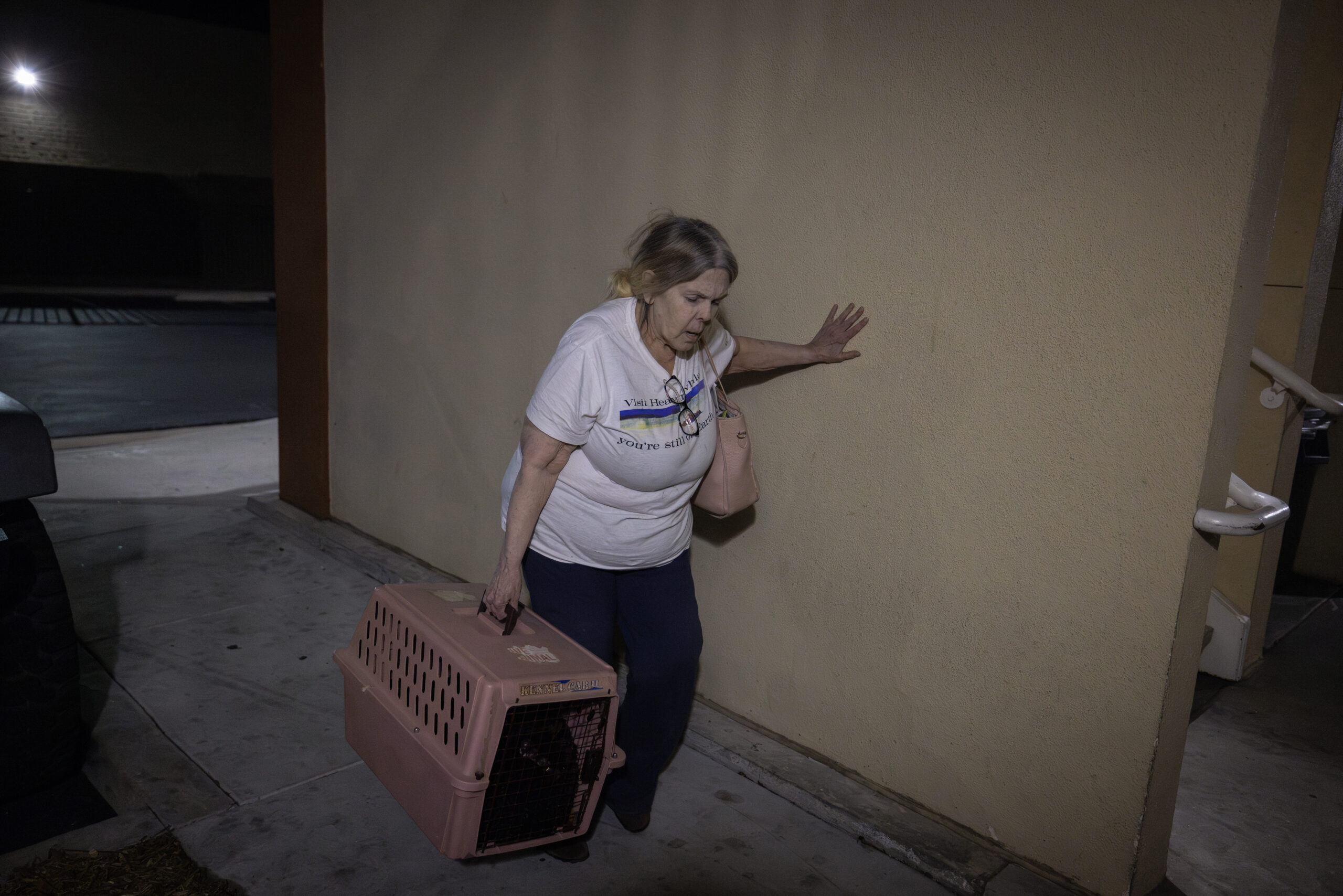

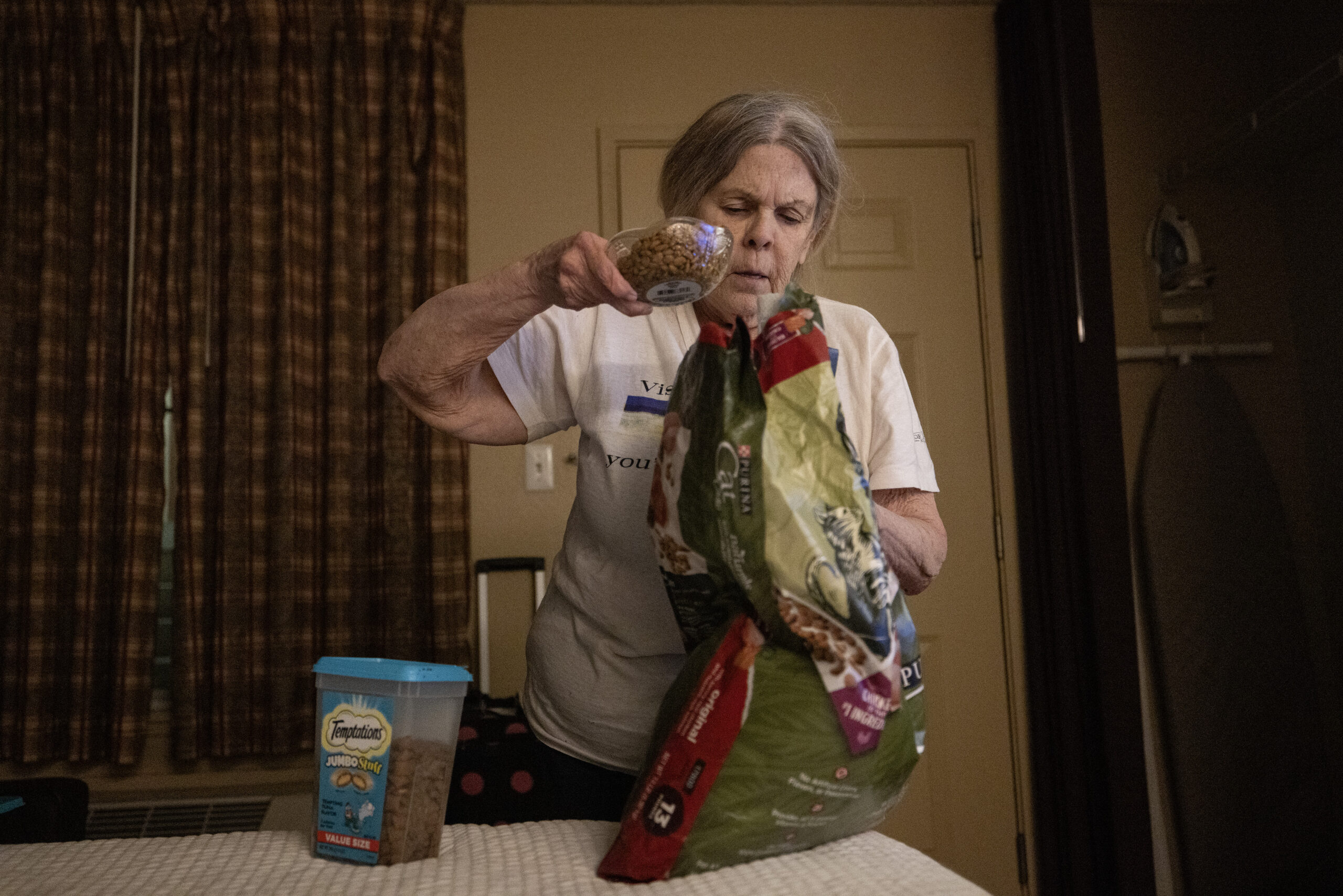
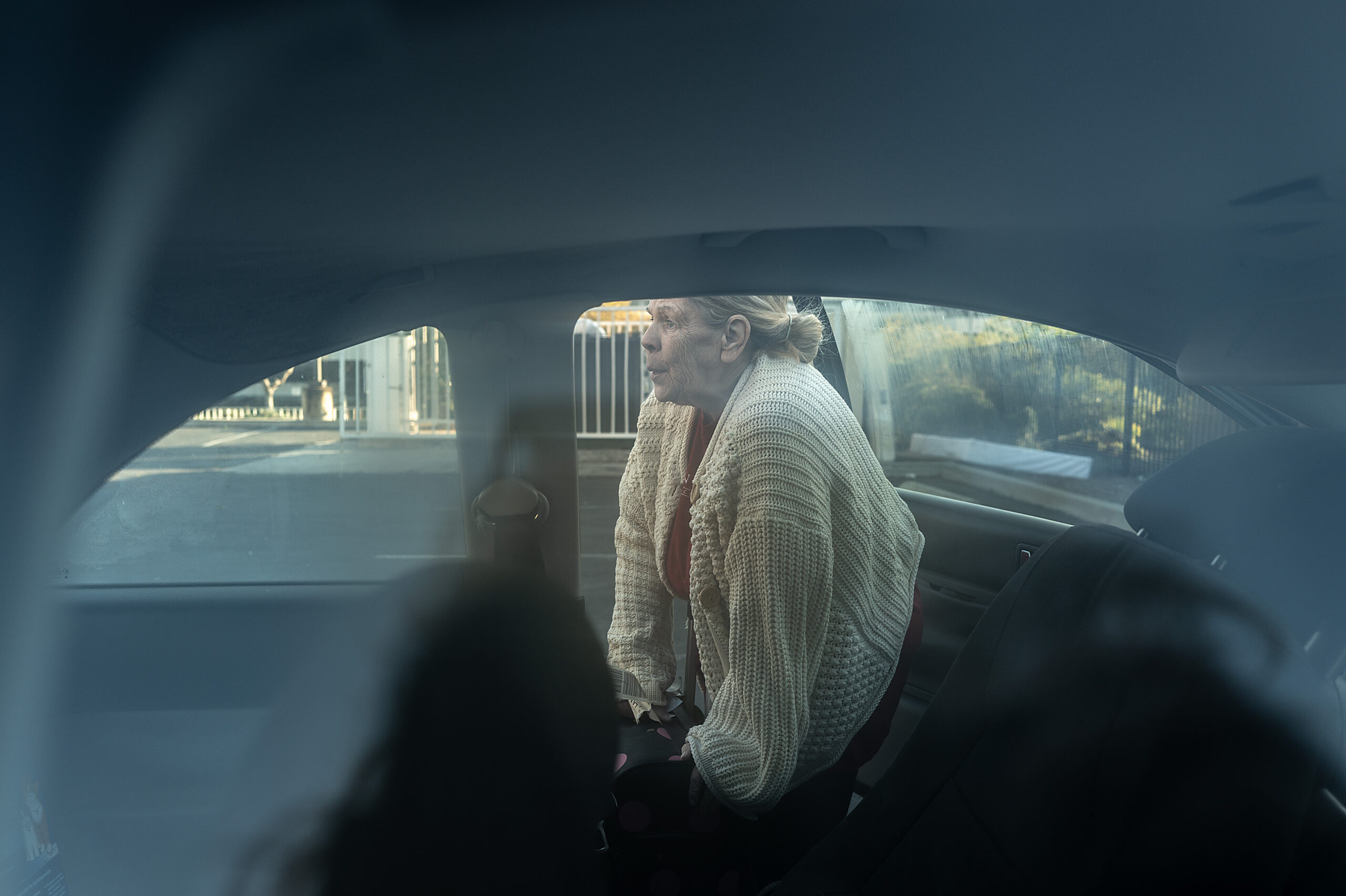

Copyright Capital & Main 2024